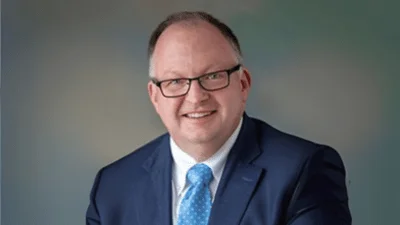The City Club of Chicago held a panel last week to discuss the state's pension crisis and how to fix it.
State Sen. Heather Steans (D-Chicago), Civic Federation President Laurence Msall and Illinois Policy Institute Budget and Tax Research Director Adam Schuster spoke on the panel, which was moderated by Chicago Tribune Editorial Board Member Kristen McQueary.
Schuster said pension costs are driving endless property and income tax hikes.

Illinois Policy Institute Budget and Tax Research Director Adam Schuster
| Courtesy of Illinois Policy Institute
"Cash-strapped cities are forced to lay off current police officers and firefighters to keep their budgets," Schuster said. "I truly believe in the importance of keeping our promise to provide our public servants with secure retirement benefits, but the status quo does not work for anyone. It's a moral imperative that we act now while modest changes can still fix it. We owe it to our retirees, taxpayers and needy Illinoisians who rely on government services to finally solve this problem once and for all."
Steans said the legislature has been trying to do something about the issue, noting that changes were made in 2011 and attempted again in 2013 before the Illinois Supreme Court intervened.
"Saying we’re not doing things is frustrating," Steans said. "We have to look at this in a realistic way. We should have labor at the table working on this with us. The consideration model at least presents the opportunity to pass constitutional muster."
The consideration model would lessen benefits for current workers and enroll new workers in a hybrid plan that has both 401(k)-type components and a pension component.
"We can’t afford the current structure," Msall said. "We can’t afford paying as much of the budget now. The biggest challenge is because the public is not hearing innovative ways to address the core problem. Public officials need to step up and address it; the public will follow."
The panel members agreed that consolidation of pension funds would be a step in the right direction.
"There will be savings with consolidations," Msall said. "It would put us in a place to be much more accountable. But the next big step is recognizing who created the liability and who will be responsible for paying for it."
Schuster's enthusiasm for consolidation was a little more tempered.
"It has limitations," he said. "If you had a larger asset pool because of consolidation, that could be good. But it's not a solution on its own. There is no way out of this without addressing current workers and retirees."
Steans said nothing is off the table and that consolidation should be analyzed.
.jpg)



 Alerts Sign-up
Alerts Sign-up